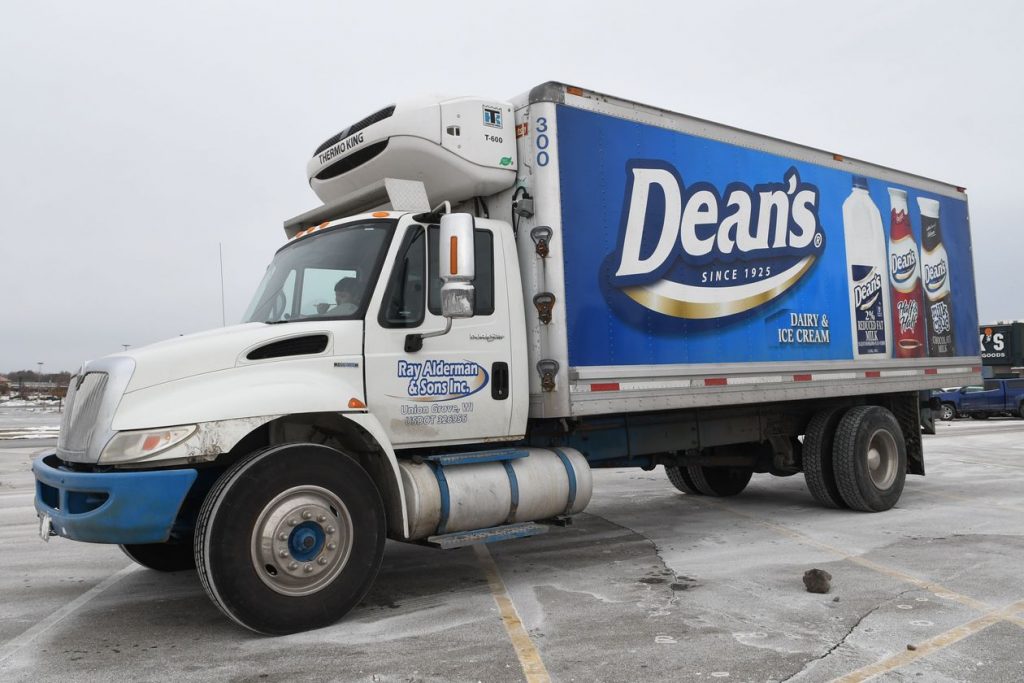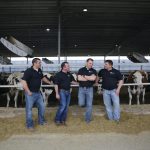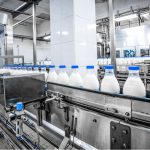
Federal antitrust regulators are probing a possible deal between a major U.S. dairy cooperative and Dean Foods Co., DFODQ +0.00% the bankrupt milk-processing giant, as the dairy industry realigns after decades of declining milk consumption.
Officials and people in the industry said the Justice Department is discussing with farmers and retailers the potential impact of such a deal on milk prices and competition in the dairy business, as Dean explores asset sales after filing for bankruptcy.
Dean, the top U.S. milk processor by sales, sought chapter 11 protection in November after struggling for years with slumping demand. That month, the Texas-based company and Dairy Farmers of America, the largest U.S. dairy cooperative by membership, said they were in deal discussions, which have continued.
Some farm groups have raised concerns that a tie-up between Dean and DFA might lead to an excessive concentration of milk buyers in parts of the country. As U.S. milk consumption has fallen about 40% over the last four decades, fluid-milk production has shifted to a smaller number of bigger plants.
“We are investigating Dairy Farmers of America’s potential acquisition of Dean Foods and the potential loss of competition for selling raw milk,” an antitrust attorney at the Justice Department wrote in a message to a dairy farmer that was reviewed by The Wall Street Journal.
In 1980, 1,066 plants across the U.S. processed an average of 50.1 million pounds of milk annually, according to U.S. Department of Agriculture data. By 2018, there were 459 plants each producing an average of 103.9 million pounds of milk.
The plant closures and consolidation have challenged dairy farmers, forcing some to find new buyers and leading others to close their milking parlors. The Agriculture Department reported about 37,500 U.S. dairy herds at the end of 2018, down from about 57,000 in 2008.
A deal between Dean and DFA would unite two dairyland giants. Dean is the biggest U.S. milk processor by sales, selling $4.8 billion worth in 2018. Dairy Farmers of America estimates that it markets nearly one-third of milk in the U.S., counting Dean as the cooperative’s biggest customer. DFA also runs milk-bottling plants and consumer dairy brands of its own.
While overall U.S. dairy consumption is growing due to rising cheese and yogurt sales, low milk prices remain a drag for farmers, who typically are paid a higher price for raw milk used to make drinkable varieties. Major retailers like Walmart Inc. and Kroger Co. have introduced cheaper in-store brands, in some cases building their own bottling plants, pressuring prices and in some cases reducing business for processors like Dean.
The outcome of any antitrust review could determine the fate of dozens of plants and other assets owned by Dean. Competition authorities could ultimately decide to take no action.
Monica Massey, DFA’s executive vice president, said the Kansas City, Kan.-based cooperative has discussed the potential Dean deal with the Justice Department and other parties, and that any deal would be subject to approval from the bankruptcy court as well as antitrust regulators.
“When the largest processor of raw milk in the world files for bankruptcy, we have an obligation to do what we can to secure those markets and work to minimize disruption to our members and other farmers,” she said. “If a deal is reached, we will fully cooperate with DOJ officials, as we have done with past transactions.”
A Dean spokeswoman declined to comment.
DFA and a group of bondholders are expected to bid on Dean’s assets. Bankruptcy hearings will take place in February.
Some dairy farmers have welcomed the possibility that DFA will take over Dean’s operations, preserving a buyer of about 10% of U.S.-produced milk, according to a company estimate. Dean’s bankruptcy and that of rival dairy processor Borden Dairy Co. in January have deepened uncertainty for farmers after years of low milk prices.
The prospect of DFA amassing more plants and purchasing power has worried other milk producers, who say the cooperative already has a conflict between its role as a marketer of farmer members’ milk—seeking the highest possible price—and its processing operations, where lower milk prices help keep costs down.
“With DFA having already a pretty significant share of the market, we’re concerned with them acquiring another big processor,” said Bobbi Wilson, government relations associate with the Wisconsin Farmers Union. She said her group met last week with antitrust officials from the Wisconsin Department of Justice after raising concerns about the potential deal.
The Wisconsin Department of Justice didn’t respond to requests for comment.
Both Dean and DFA have grown through acquisitions of smaller milk processors and cooperative mergers, industry officials said. Absorbing Dean’s operations could give DFA more than 60% share of fluid-milk sales in upper Midwestern markets like Wisconsin, Minnesota and Iowa, said Peter Carstensen, a University of Wisconsin Madison law professor emeritus and former antitrust attorney for the U.S. Department of Justice.
DFA hasn’t detailed which assets of Dean the cooperative may acquire. Ms. Massey said that DFA wants to see as many of Dean’s plants continue to operate as possible, to ensure markets for farmers’ milk.























